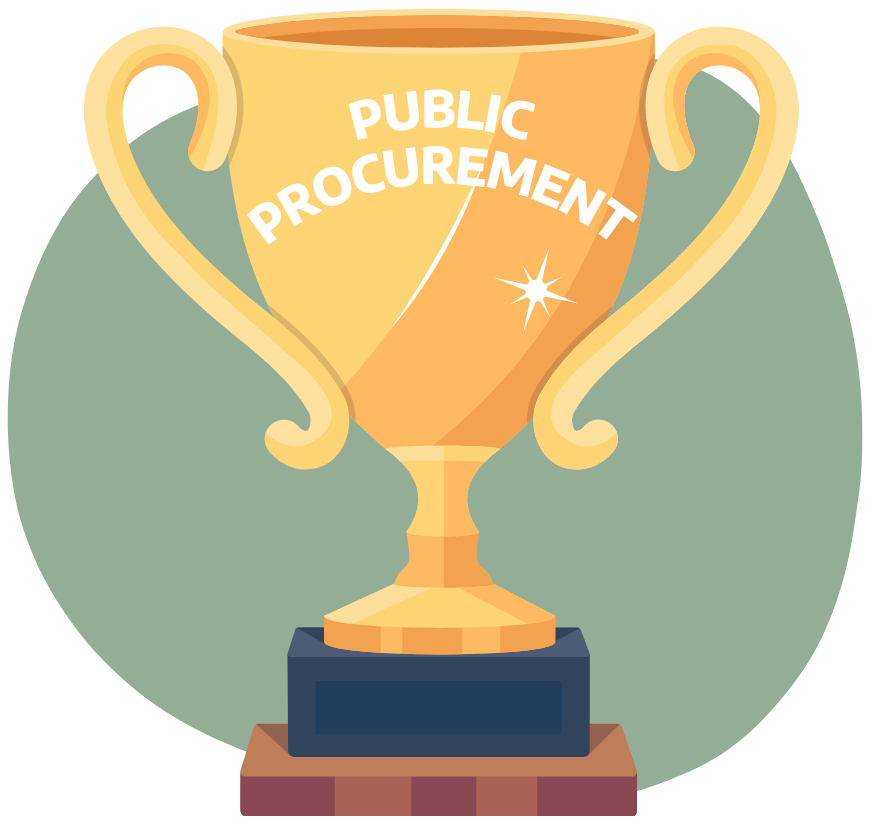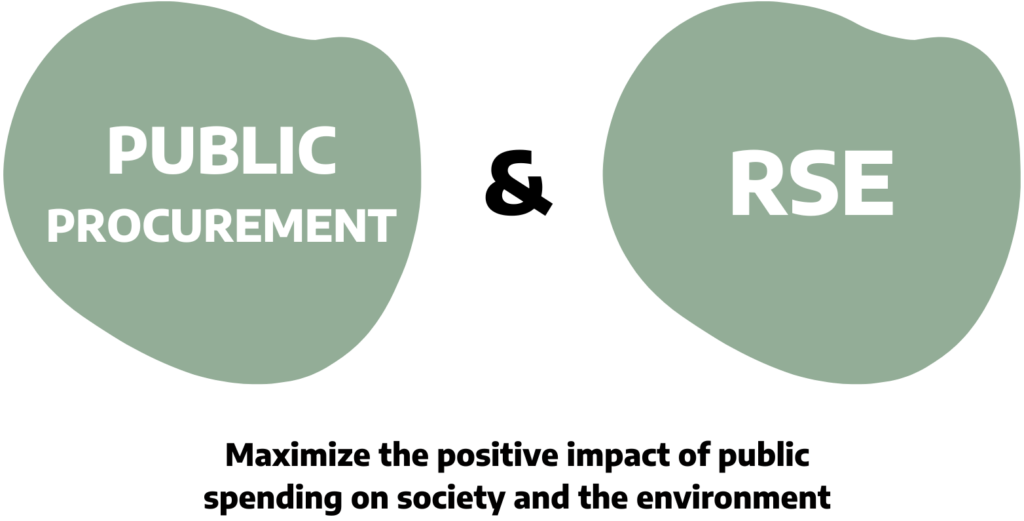Maximize your sustainability points in public procurement in French-speaking Switzerland with our practical strategies and resources for integrating ecological and social criteria effectively.
All you need to know about Public Procurement in 2024
- Mis à jour le 08.05.2025

Welcome to Mon Entreprise Durable by Coptain! Our mission is to empower CSR managers to amplify their impact!
In a world where sustainability and social responsibility are increasingly important, public procurement plays a crucial role in influencing business practices. The integration of Corporate Social Responsibility (CSR) into public procurement processes not only promotes sustainable practices but also aligns economic goals with social and environmental imperatives. Here, you will discover how CSR is integrated into public procurement, the challenges and opportunities associated with it, and the benefits for companies that engage in this approach. Through a series of questions and answers, we will explore best practices, current legislative frameworks, and future trends shaping this dynamic field.
The entire team wishes you a pleasant reading experience!
Here you will find :
This article guides Swiss companies on how to integrate sustainability into public procurement, turning legal requirements into opportunities to innovate and stand out from the crowd.
This article explains how EcoVadis certification helps companies to structure, assess and improve their CSR practices, with a focus on continuous improvement.
Optimize your EcoVadis score with these 5 practices: understand the criteria, reinforce your CSR policies, involve the whole company, monitor actions and anticipate assessments.
Filling in an EcoVadis questionnaire is a strategic lever for enhancing your CSR commitment. This article will help you structure your answers and succeed in obtaining certification.
What is Corporate Social Responsibility (CSR) in the context of public procurement?
Corporate Social Responsibility (CSR) in the context of public procurement refers to the integration of social, environmental, and ethical considerations into public purchasing processes. Public procurement, which represents a significant portion of public spending, has the potential to positively influence business practices by favoring companies that adopt sustainable and responsible practices.
By integrating CSR, public buyers encourage suppliers to adopt practices that go beyond mere legal compliance, promoting goals such as reducing carbon footprints, improving working conditions, and supporting local communities. This approach maximizes the positive impact of public spending on society and the environment.

By integrating CSR, public buyers encourage suppliers to adopt practices that go beyond mere legal compliance, promoting goals such as reducing carbon footprints, improving working conditions, and supporting local communities. This approach maximizes the positive impact of public spending on society and the environment.
Why is it important to integrate CSR into public procurement?
Integrating CSR into public procurement is crucial for several reasons. Firstly, it allows governments to promote sustainable development by using their purchasing power to encourage responsible business practices.
By requiring suppliers to meet certain CSR criteria, public administrations can help reduce negative environmental impacts and improve social conditions.
Secondly, it helps align public procurement with broader policy objectives regarding sustainability and social responsibility.
Finally, integrating CSR into public procurement can stimulate innovation by encouraging companies to develop new sustainable solutions to meet tender requirements.
How do CSR criteria influence the selection of suppliers in public procurement?
CSR criteria influence the selection of suppliers by adding an additional dimension to the evaluation of bids. Besides price and quality, public buyers consider criteria such as the environmental impact of the proposed products or services, fair labor practices, and contributions to local development.
For example, a tender might require suppliers to demonstrate their commitment to reducing carbon emissions or using recycled materials. These criteria allow buyers to select suppliers who not only meet functional needs but also contribute to broader social and environmental goals.
What are the main challenges faced by companies when integrating CSR into public tenders?
Companies can face several challenges when integrating CSR into their responses to public tenders. One of the main obstacles is the potential cost associated with implementing sustainable practices, which can be high for some small or medium-sized enterprises (SMEs).
Moreover, there may be a lack of clarity on how CSR criteria are evaluated, complicating the preparation of bids. Companies also have to navigate a complex regulatory landscape where requirements can vary significantly from one market to another.
Lastly, some companies may find it difficult to measure and effectively demonstrate their CSR performance.
How can a company prepare to meet CSR requirements in a public tender?
To effectively prepare for CSR requirements in a public tender, a company should adopt several key strategies.
First, it must ensure a thorough understanding of the specific criteria outlined in the tender and how these will be evaluated.
Then, it is essential for the company to implement a robust system to track and measure its CSR performance in order to provide tangible evidence during the tender process. It can also be helpful for the company to engage with internal and external stakeholders to identify and implement continuous improvements in its sustainable practices.
Finally, preparing clear and compelling documentation that highlights its commitment to CSR can strengthen its proposal.
Our tips and best practices for CSR in public procurement
Several best practices can be observed in the field of public procurement integrating CSR. For example, some public administrations have implemented green purchasing programs where they systematically favor certified eco-friendly or fair-trade products. Others have adopted a life-cycle approach to assess the total environmental impact of a product or service before purchasing.
Additionally, some local authorities have developed partnerships with social enterprises to provide certain public services, thereby enhancing their positive social impact while meeting contractual obligations.
Conclusion
Integrating CSR into public procurement represents a tremendous opportunity for companies to demonstrate their commitment to sustainable practices while enhancing their competitiveness.
By adopting CSR criteria, public buyers can positively influence the market by favoring innovative and responsible solutions.
For companies, this means not only complying with growing requirements but also benefiting from a better reputation, increased customer loyalty, and expanded access to markets.
As legislation continues to evolve and technology opens up new possibilities, the relationship between public procurement and CSR is set to strengthen, creating a favorable environment for sustainable and inclusive economic development.
FAQ
What are the different types of public procurement?
What are the eligibility criteria for participating in a public procurement process?
How can small businesses improve their chances of winning a public tender?
What is the process of a public tender?


How can we help you?
I want to know more about you
Our job is to enable CSR managers to multiply their impact!
Our solution: go into “action” mode.
We are organized into a Taskforce. Ready to deploy as soon as we get your GO!


